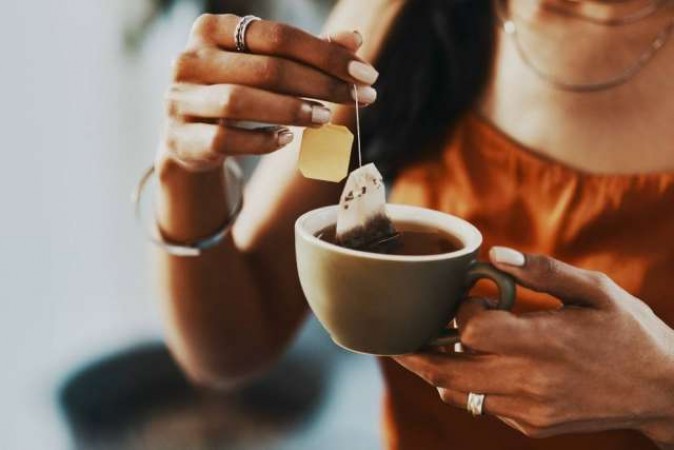
In the world of health and wellness, rumors often circulate, and one that has gained traction is the idea that drinking tea can turn your skin black. Let's delve into this claim and separate fact from fiction.
Tea, a beverage steeped in tradition and cultural significance, has found its way into various aspects of daily life. However, the notion that it can alter skin color is rooted in misinformation and cultural misunderstandings. The spread of this myth highlights the importance of critical thinking when it comes to health-related beliefs.
Tea contains tannins, natural compounds found in plants. Some argue that excessive tea consumption, particularly of black tea, can lead to an increase in tannin levels in the body, affecting skin color. Tannins are known for their astringent properties, and the theory suggests that these properties could somehow influence the pigmentation of the skin.
However, scientific research indicates that the tannin levels in tea are not substantial enough to cause changes in skin pigmentation. While tannins indeed have astringent properties, linking them directly to skin color transformation lacks scientific backing. The body processes the tannins in tea differently, and their concentration is not significant enough to cause any noticeable impact on the skin.
Black tea, often accused in this myth, is a popular variant globally. Let's explore whether it has any impact on the color of our skin. The association between black tea and skin darkening primarily stems from its rich color and the presence of polyphenols.
Black tea is rich in polyphenols, known for their antioxidant properties. However, these compounds do not have the ability to alter melanin production, the pigment responsible for skin color. The antioxidants in black tea contribute to its health benefits, but they do not possess the magical power to change the hue of your skin.
Rather than blaming tea, lifestyle factors like exposure to sunlight, genetics, and overall diet play more significant roles in determining skin color. Melanin production is a complex process influenced by various internal and external factors. Sun exposure, for instance, stimulates melanin production, leading to a tan. Understanding these factors helps dispel the myth and encourages a more informed perspective on skin health.
Moreover, hydration plays a crucial role in skin health. Drinking ample water, including tea, can contribute to overall skin health. Staying hydrated supports the body's natural processes and can enhance the skin's appearance. So, while tea might not be the culprit behind skin darkening, it is essential to maintain proper hydration for overall well-being.
Like any beverage, excessive tea consumption may have health implications. However, the focus should be on moderation rather than associating tea with drastic changes in skin color. Understanding your body's tolerance to caffeine, especially in teas like black tea, can help you strike the right balance between enjoying your favorite beverage and maintaining optimal health.
The world of tea is vast, offering various options such as green, herbal, and white teas. Exploring these alternatives can provide a range of health benefits without the baseless fear of skin darkening. Each tea variety comes with its unique set of antioxidants and compounds, contributing differently to your overall health. Embracing this diversity ensures a well-rounded approach to tea consumption.
Cultural beliefs sometimes contribute to the perpetuation of myths. It's essential to approach such claims with a critical mindset, considering scientific evidence over unfounded traditions. While cultural practices enrich our lives, it's crucial to differentiate between traditions and scientifically proven facts, especially when it comes to health-related beliefs.
Educating communities about the science behind food and beverage effects on the body can help dispel myths and foster a more informed and open-minded approach to dietary choices. Encouraging cultural awareness alongside scientific literacy ensures a balanced perspective, allowing individuals to embrace their cultural practices while also making informed decisions based on evidence.
Rather than fearing tea, embrace it as part of a balanced lifestyle. Tea, when consumed mindfully, can offer a plethora of health benefits without the unfounded worries of skin color changes. The key lies in moderation and choosing tea as part of a well-rounded diet.
Experimenting with different tea varieties ensures a diverse intake of nutrients and antioxidants, contributing to overall well-being. Green tea, for example, is known for its high concentration of catechins, while herbal teas offer a caffeine-free option. Incorporating a variety of teas into your routine adds not only flavor but also a spectrum of health benefits.
Scientific evidence strongly refutes the claim that tea can alter skin color. Understanding the facts allows individuals to enjoy their tea without unnecessary concerns. It's crucial to rely on evidence-based information to make informed decisions about dietary choices.
In conclusion, there is no need to fret about tea darkening your skin. Embrace your favorite cuppa with confidence, knowing that it brings more health benefits than imagined. The pleasure of tea lies not just in its taste but also in the wealth of compounds that contribute to your overall well-being. In a world where health myths abound, it's essential to be discerning and base our beliefs on scientific evidence. So, sip away and enjoy the goodness of tea without any reservations! Remember, moderation is the key, and the real essence of tea lies in the pleasure of its consumption, rather than unfounded fears about its impact on your skin color.
How different is Type 1 and Type 2 diabetes from each other, know its initial symptoms and causes
5 new cars will be launched in the market in February, see specifications related details